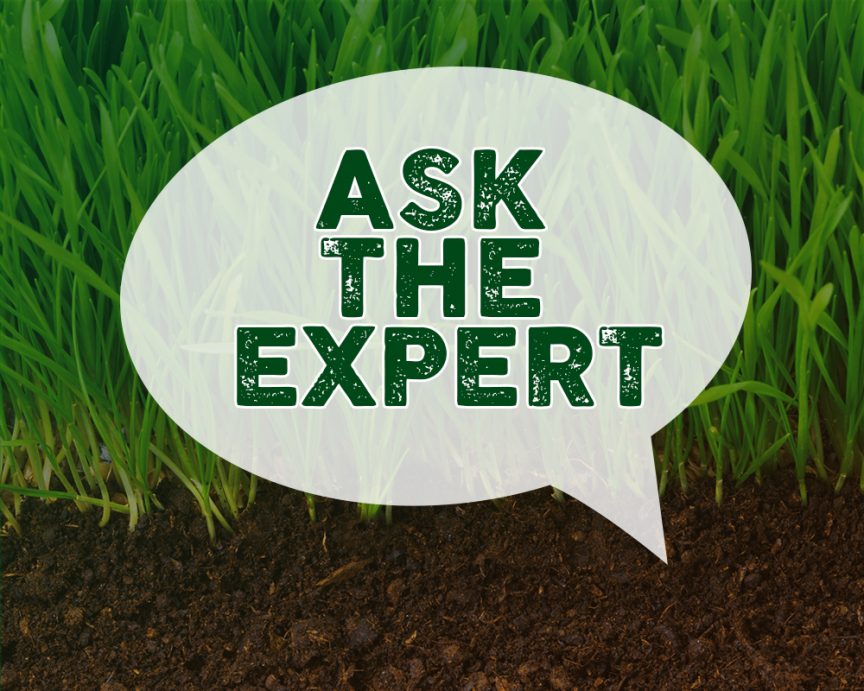If you had a dollar for every time you heard organic, green, sustainable, or low-impact, you’d be relaxing somewhere on the beach because you wouldn’t need to work anymore. The organic movement is no longer a trend, it’s a way of life.
Homeowners, especially the younger ones, have come to expect organic or low-impact as an option. Just step into any supermarket and you’ll see not only organic options but entire sections of the store now dedicated to it. So how does this impact you as a contractor? Consumers are more educated than ever before but they still rely on you to be the expert. They want options and recommendations, and many times they’ll need to know the pros and cons of each option before they’ll make a decision.
As a landscape professional, you’re already an expert in your field but in this ever-evolving industry, organic chemicals and specifically organic-based fertilizers may be out of your wheelhouse. And that’s why we’ve asked John Huber, Central’s Organic and Sustainable Products Manager, to weigh in and provide insight on five important things to know about organic-based fertilizers. With more than 30 years of experience in the Green Industry and 15 years in organic fertilizer manufacturing, John is an invaluable resource for high-value, low-impact, sustainable solutions.
What is organic fertilizer?
The cliff notes answer to this question is, it all depends on who you ask and where you live.
There are several regulatory entities that simply cannot agree on the definition of organic. So, it’s up to us as Green Industry professionals to educate ourselves and determine the best way to navigate the regulations and provide stewardship to the industry.
But to me, organic means all things, whether that’s manure, meals, botanical waste or food waste. They all contain viable organic matter which enables plants to thrive.
Who are these regulatory entities?
The Organic Materials Review Institute (OMRI) is probably the most recognized regulatory organization for organic fertilizers and control products in the U.S. Being OMRI listed or certified carries a great deal of credibility, especially when it comes to organic farming of crops that end up in our grocery stores for human consumption.
What about turf grass and landscape plants that are not intended to be consumed?
The Association of American Plant Food Control Officials (AAPFCO) collaborates and adheres to state regulations regarding fertilizers. This can be very confusing because each state is different with regards to what fertilizers meet the requirements outlined by the particular state. Most of these requirements and restrictions include full bans on phosphorus and reductions of nitrogen by 30%. These restrictions can be detrimental to the health of plants.
There are currently more than 12 states in the U.S. that have passed laws to limit or completely ban phosphorus. Some states (NJ, MI, IL) have exemptions for phosphorus that is contained in organic materials such as manures and biosolids. But to make it even more confusing, several counties, cities and even homeowners’ associations mandate their own requirements which can exclude phosphorus contained in organic materials. This only fuels confusion and creates doubt about what organic-based fertilizers are really acceptable.
So, how do we determine what organic-based fertilizers are acceptable in a specific state or region?
Our team at Central knows what fertilizers can be used and where. This helps to eliminate any of the confusion that comes with state and local municipalities. In addition, we can help you determine what organic-based fertilizer make sense for your job-site goals.
Low-impact fertilizers have been proven by university research to be more efficient and effective than conventional fertilizers. Better yet, fertilizers containing organic matter and organic nutrients, formulated with the proper conventional minerals, are less expensive than 100% organic fertilizers.
All of this not only helps to keep your customers happy, but these fertilizers help to keep our waterways clean by slowly releasing nitrogen over time. The nutrients end up in the plant and not our water ways or landfills.
You mention that these organic-based fertilizers are more efficient and effective than conventional fertilizers. Why?
Over the years, I heard many objections to organic-based fertilizers including, they’re too slow to respond, they cost too much money, they are poor quality, they have too much dust, and they smell bad. All of this is in the past. Organics have changed leaps and bounds over the years and today, they can be more efficient and effect than conventional fertilizers.
Using the proper proportions of organic to conventional sources is vital. You’ll notice I keep mentioning this in my answers, this is what creates the efficiency and effectiveness. When a formula is balanced properly, all the right things can happen. Nitrogen can be slowly released over time, enough oxygen can reach the roots, and the carbon-to-nitrogen ratio can help the plant to grow.
Beyond that, there is an added value to organics. The effects of simple organic compounds such as auxins, cytokinins and humates reduce surge growth, promote density, deliver consistent and long-lasting color, suppress diseases, and improve heat and drought tolerance.
A thoughtful approach and execution have gone into our organic fertilizers to solve for dust and smell. This means less call backs and complaints from your customers.
Sourcing only the highest quality organic material, we focus on consistent particle sizing and distribution. Then, we make sure the dust suppressants are combined and heated with the organic source (very few manufacturers do this). When these two things are done, dust is significantly reduced. When you reduce dust, the smell is nearly eliminated.
Why more than ever is sustainability important?
This is an area near and dear to my heart. We all know why it’s important, I don’t need to go on and on about the amount of waste in our waterways or our outdated disposal programs such as landfilling and incineration. There is an urgent need for sustainable solutions. And that’s why I am so passionate about our organic-based fertilizer program. Our fertilizers are created with high-value, low-impact recycled organic materials. They have been optimized for a plant’s consumption, thus keeping these materials out of our landfills and waterways.
More About John Huber

John started out in the Green Industry as a grower of nursery plants. John launched his own landscape company and successfully built his business into the first organic-based turf management company in south eastern Virginia.
More recently, John worked in fertilizer manufacturing using organic ingredients that increased efficiency, and delivered numerous plant health benefits not found in today’s conventional fertilizers. John brings a wealth of knowledge in sustainable solutions. And with his leadership, Central Turf & Irrigation Supply will provide the stewardship to lead The Green Industry forward, into a new era of sustainability.

